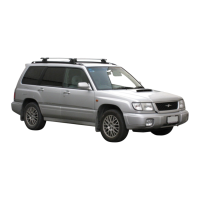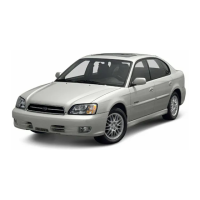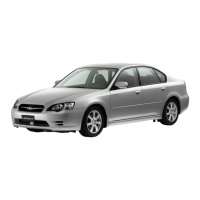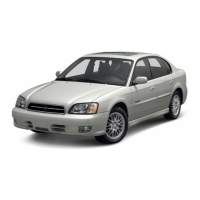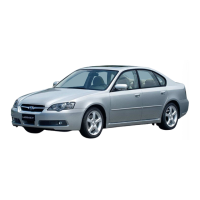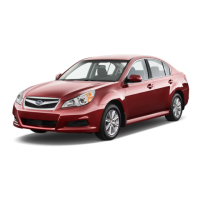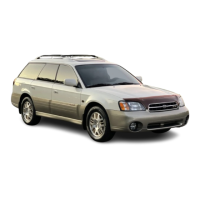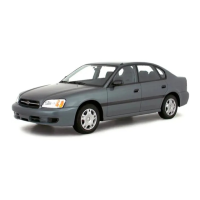Legacy U.S.A. (E)
7
Starting and operating
7-47
– CONTINUED –
If you carry heavy loads in the vehicle, you should confirm that GVW and
front and rear GAWs are within the GVWR and GAWR by putting your
vehicle on a vehicle scale, found at a commercial weighing station.
Do not use replacement tires with a lower load range than the originals
because they may lower the GVWR and GAWR limitations. Replacement
tires with a higher load range than the originals do not increase the
GVWR and GAWR limitations.
NOTE
For better fuel economy, do not carry unneeded cargo.
Trailer towing
(for all vehicles except OUTBACK and SUS)
Your car is designed and intended to be used primarily as a passenger-
carrying vehicle. Towing a trailer puts additional loads on your car’s en-
gine, drive train, brakes, tires and suspension and has an adverse effect
on fuel economy.
If you do decide to tow a trailer, your safety and satisfaction depend
upon proper use of correct equipment and cautious operation of your ve-
hicle. Seek the advice of a professional trailer and/or hitch supplier to
assist you in purchasing a hitch and other necessary towing equipment
appropriate for your vehicle. In addition, be sure to follow the instructions
on correct installation and use provided by the trailer and other towing
equipment manufacturers.
SUBARU assumes no responsibility for injuries or vehicle damage that
result from trailer towing equipment, or from any errors or omissions in
the instructions accompanying such equipment or for your failure to fol-
low the proper instructions.
J Warranties and maintenance
SUBARU warranties do not apply to vehicle damage or malfunction
caused by trailer towing. If you use your vehicle to tow a trailer, more
frequent maintenance will be required due to the additional load.
Under no circumstances should a trailer be towed with a new vehicle or a
vehicle with any new power train component (engine, transmission, differ-
ential, wheel bearings, etc.) for the first 1,000 miles (1,600 km) of driving.
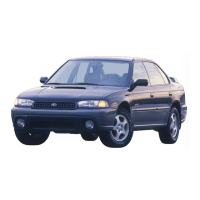
